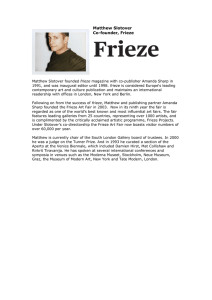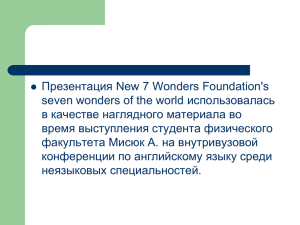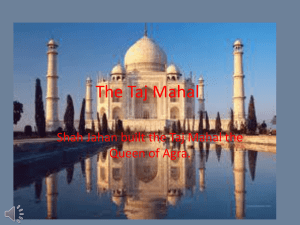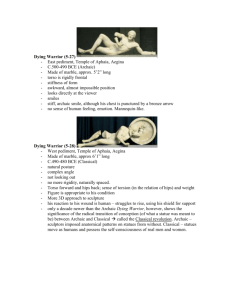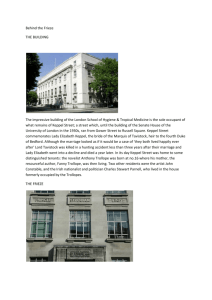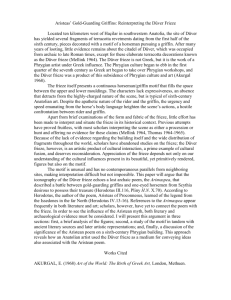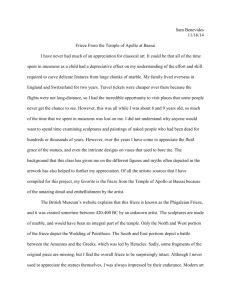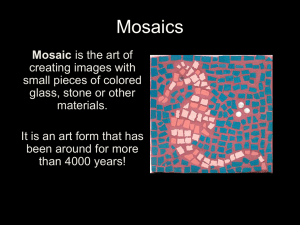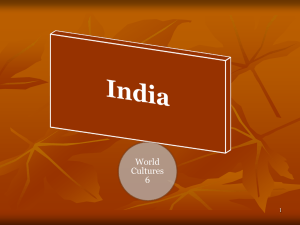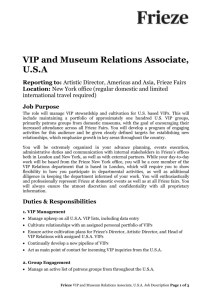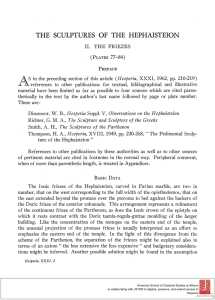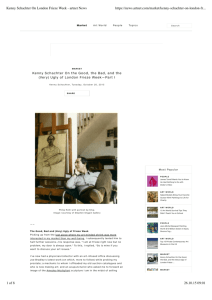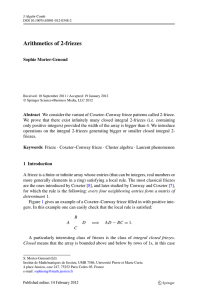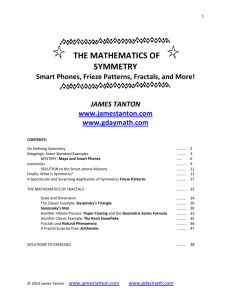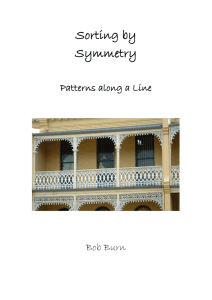Friezes and Mosaics
advertisement
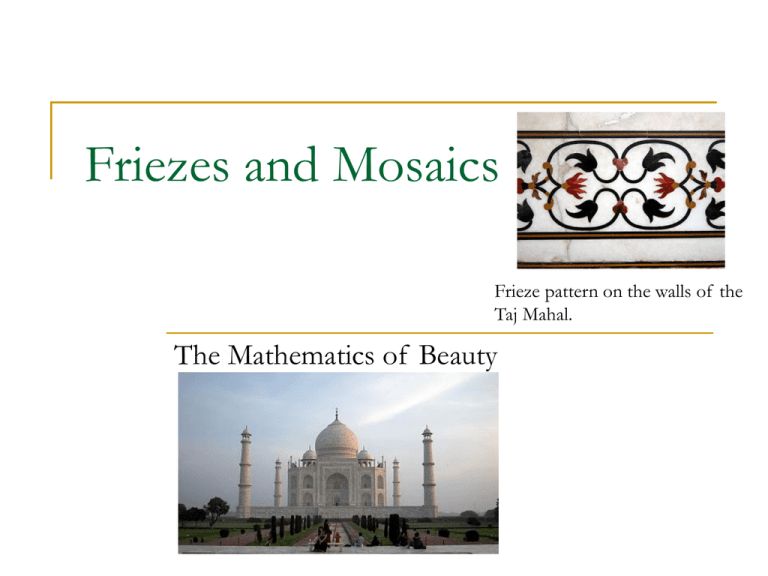
Friezes and Mosaics Frieze pattern on the walls of the Taj Mahal. The Mathematics of Beauty Frieze patterns in the Taj Mahal The gardens and corridors have many frieze patterns. Mosaics in the Taj Mahal The ground around the Taj Mahal is laid with a tiling pattern of fourpointed stars. Palace of mirrors in Jaipur, India The palace complex at Amer Fort near Jaipur has a hall of mirrors. During the day, the chamber reflects sunlight and at night, a single candle is reflected multiple times enough to illuminate the room. Jaisalmer in Rajasthan These are frieze patterns appearing on the walls of the Jaisalmer Fort in Rajasthan, India. Friezes We will look at the symmetries of these seven frieze patterns. Simplified friezes These exhibit translational, rotational and reflective symmetries. Main theorem for symmetry groups of friezes There are only 7 possible symmetry groups for any frieze pattern. They are listed as: (1) <tL>, group generated by a translation of length L. (2) <tL, r v>, with vertical reflection r v. (3) <tL, rh>, with horizontal reflection rh. (4) <tL, tL/2rh>. (5) <tL, rh r v >. (6) <tL, tL/2rh , rhr v>. (7) <tL, rh, r v >. Mosaics A mosaic is a pattern that can be repeated to fill the plane and it is periodic along two independent directions. Main theorem for symmetry groups of mosaics There are only 17 symmetry groups and these can be listed. The simplest is the group generated by a single translation.(p1) The groups pg and pm The group pg contains glide reflections only and their axes are parallel. The group pm has no rotations and only reflection axes which are parallel. cm, p2 and pgg pmg, pmm and cmm p3, p31m, and p3m1 There are five more crystallographic groups: p4, p4g, p4m, p6 and p6m.

